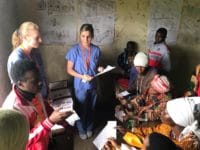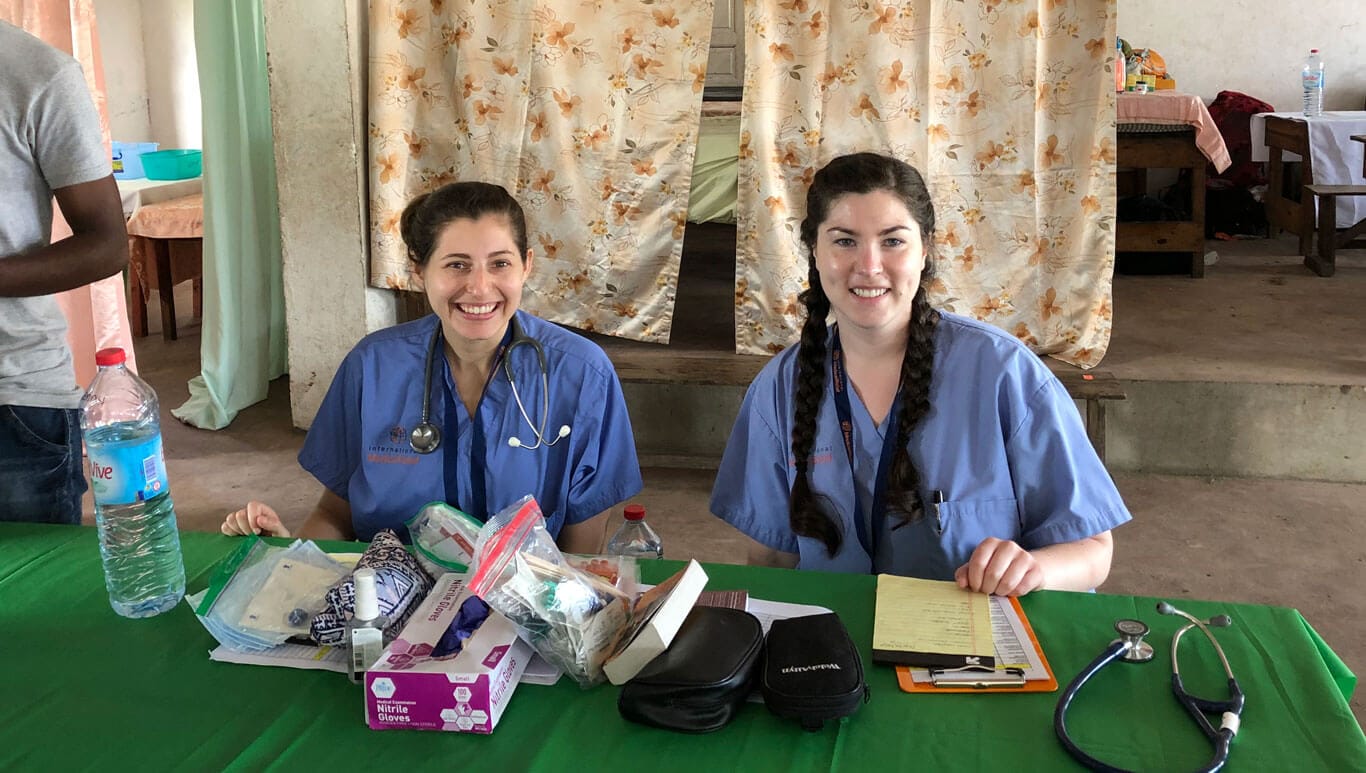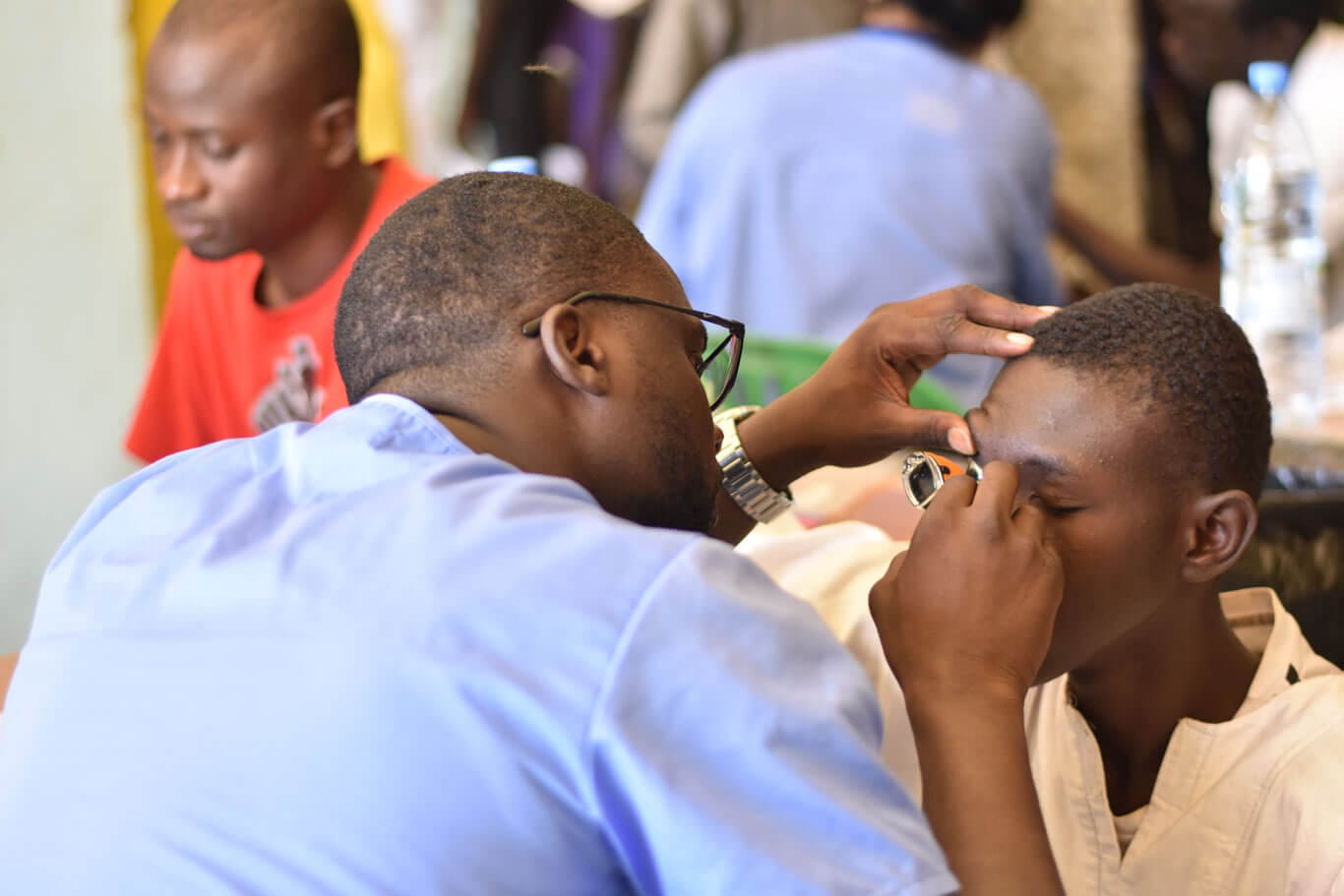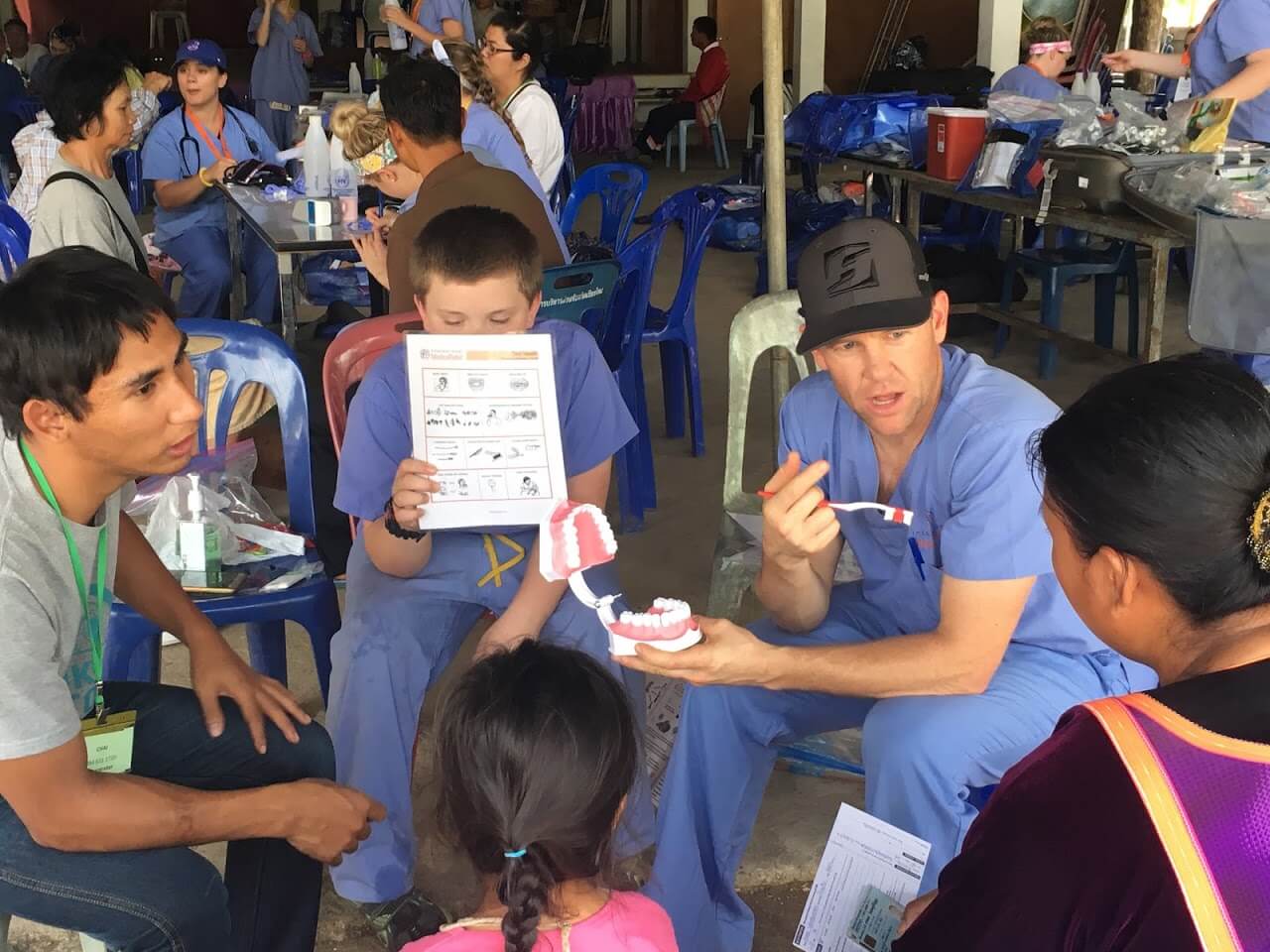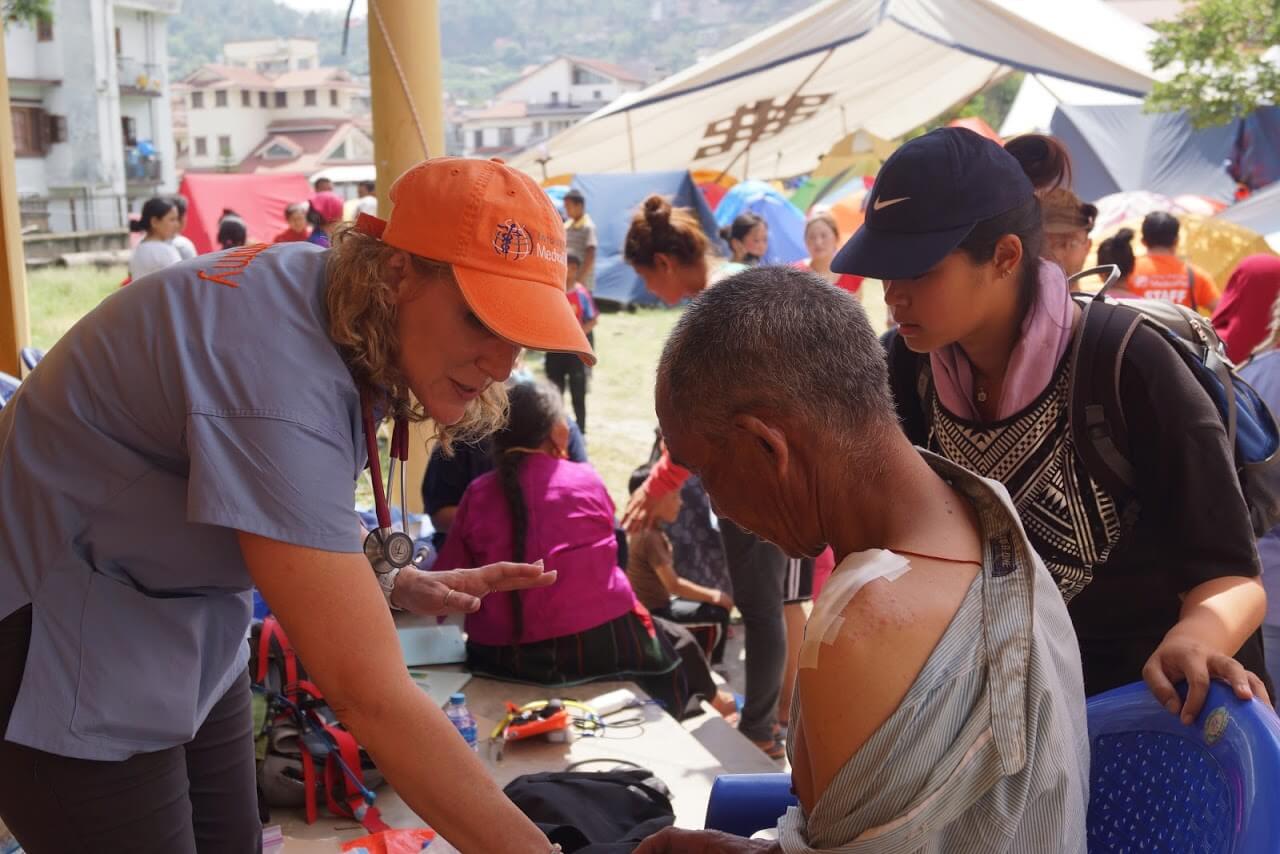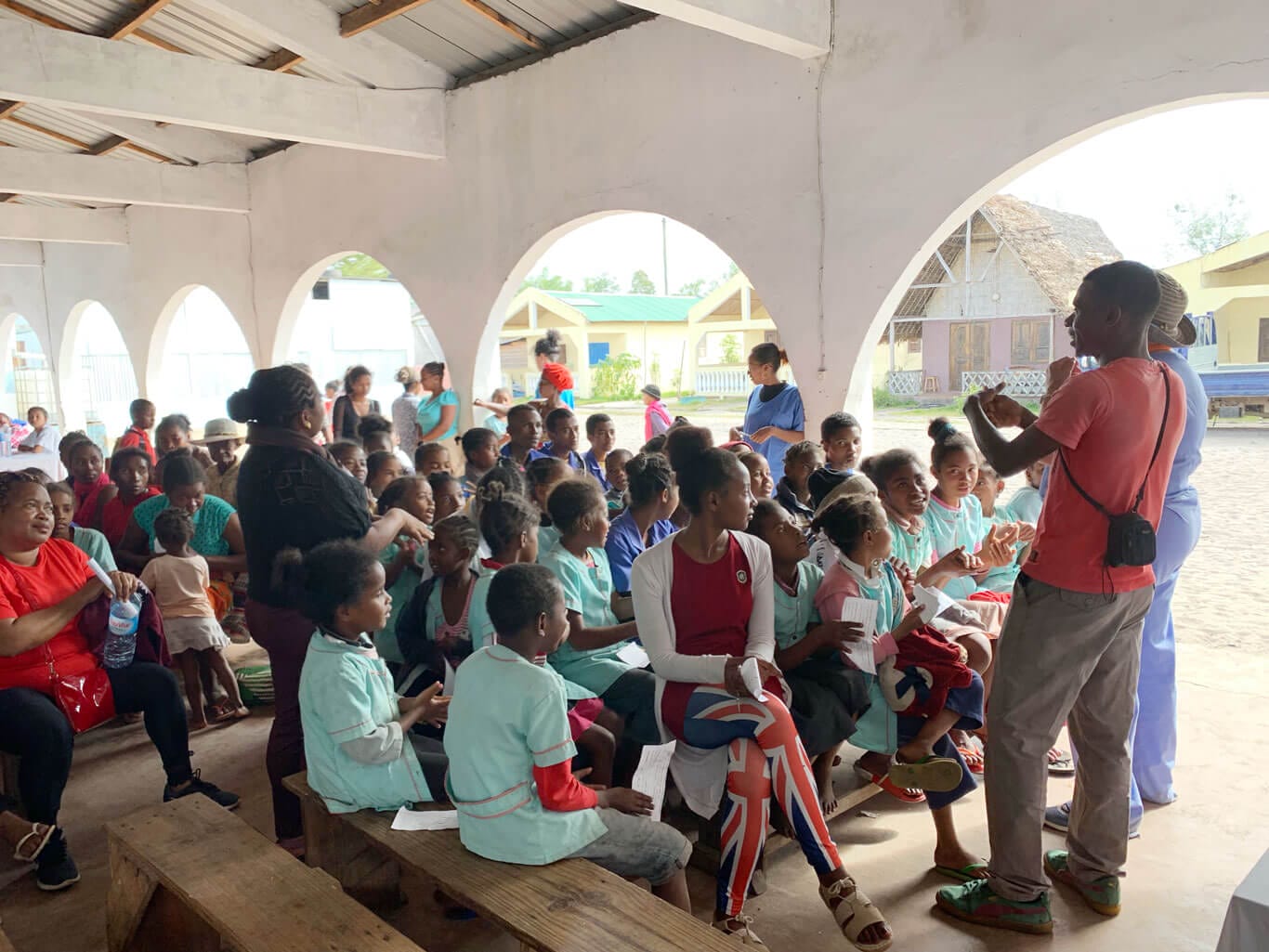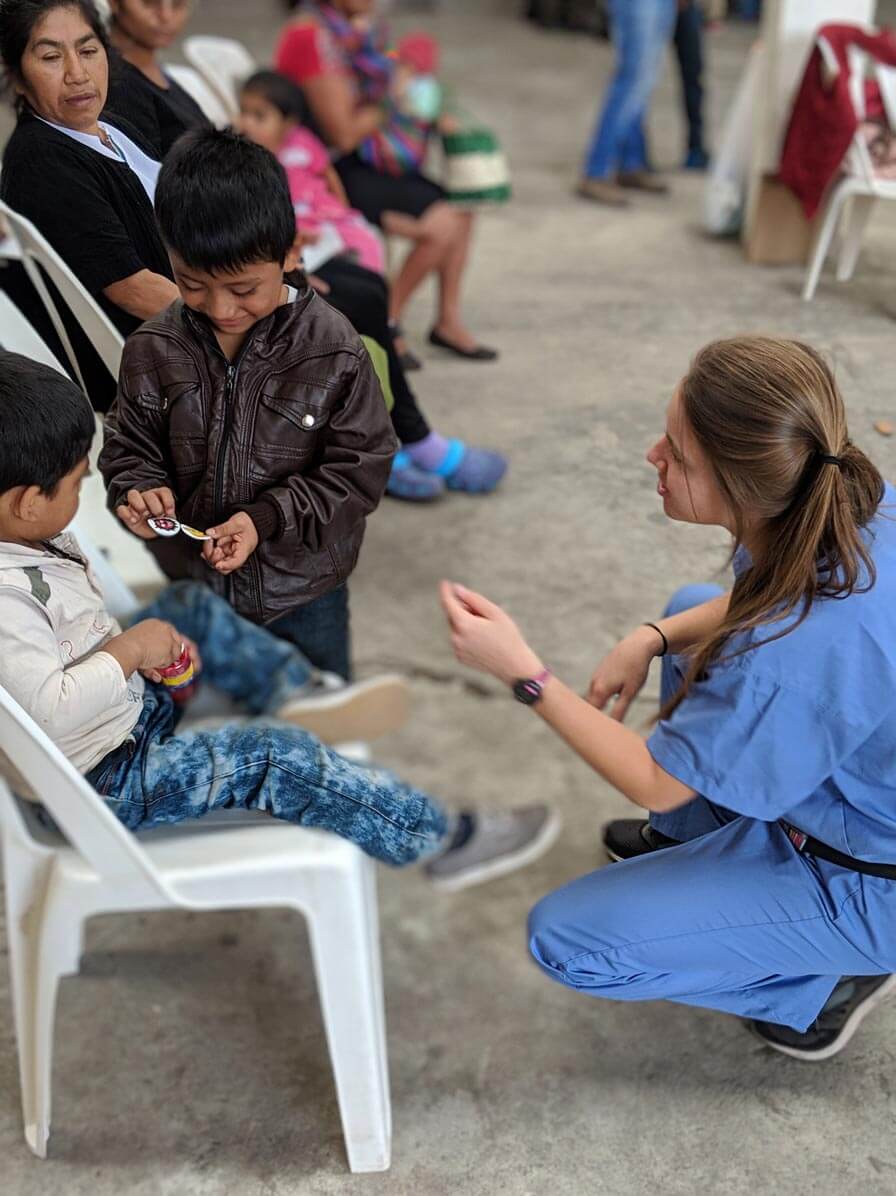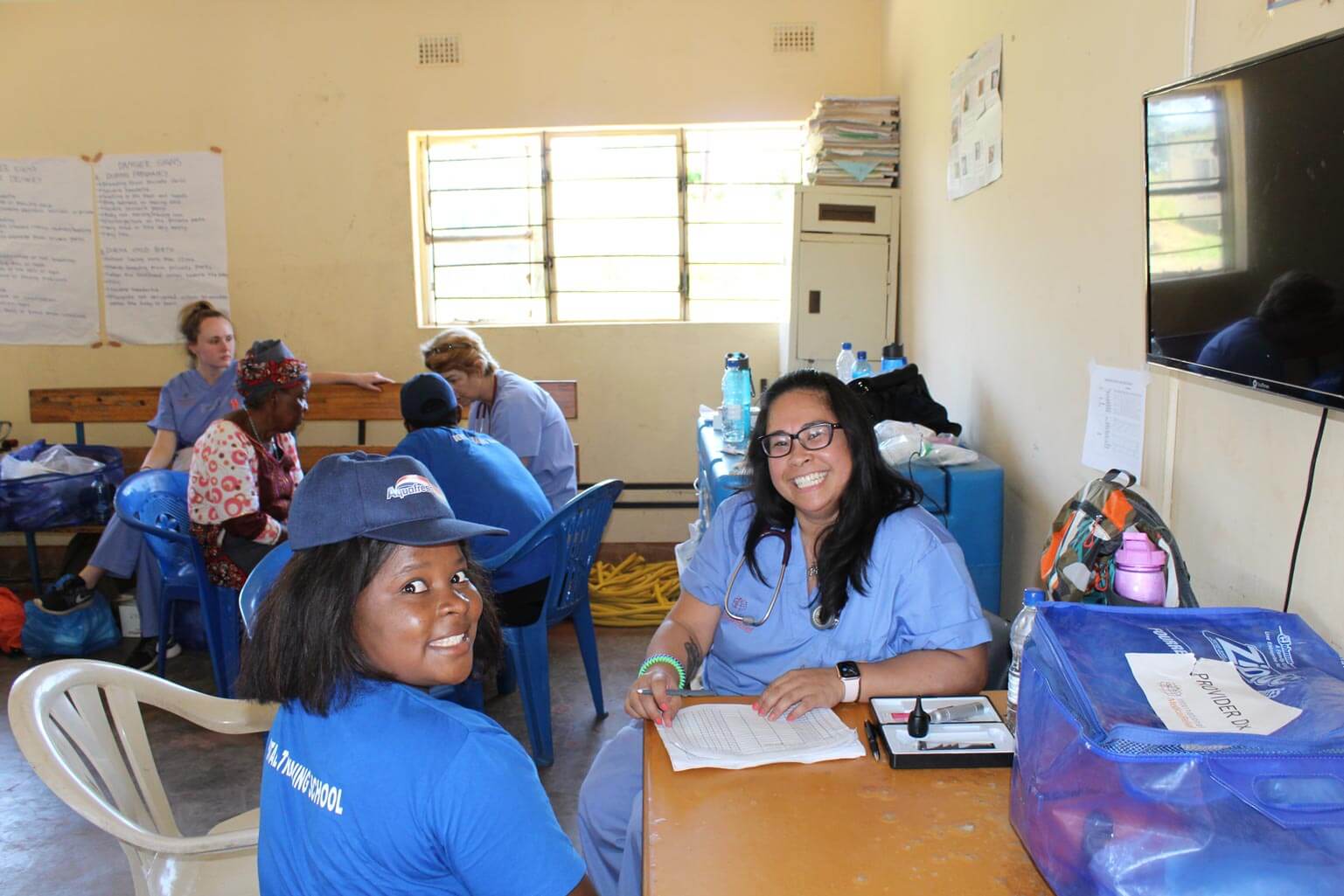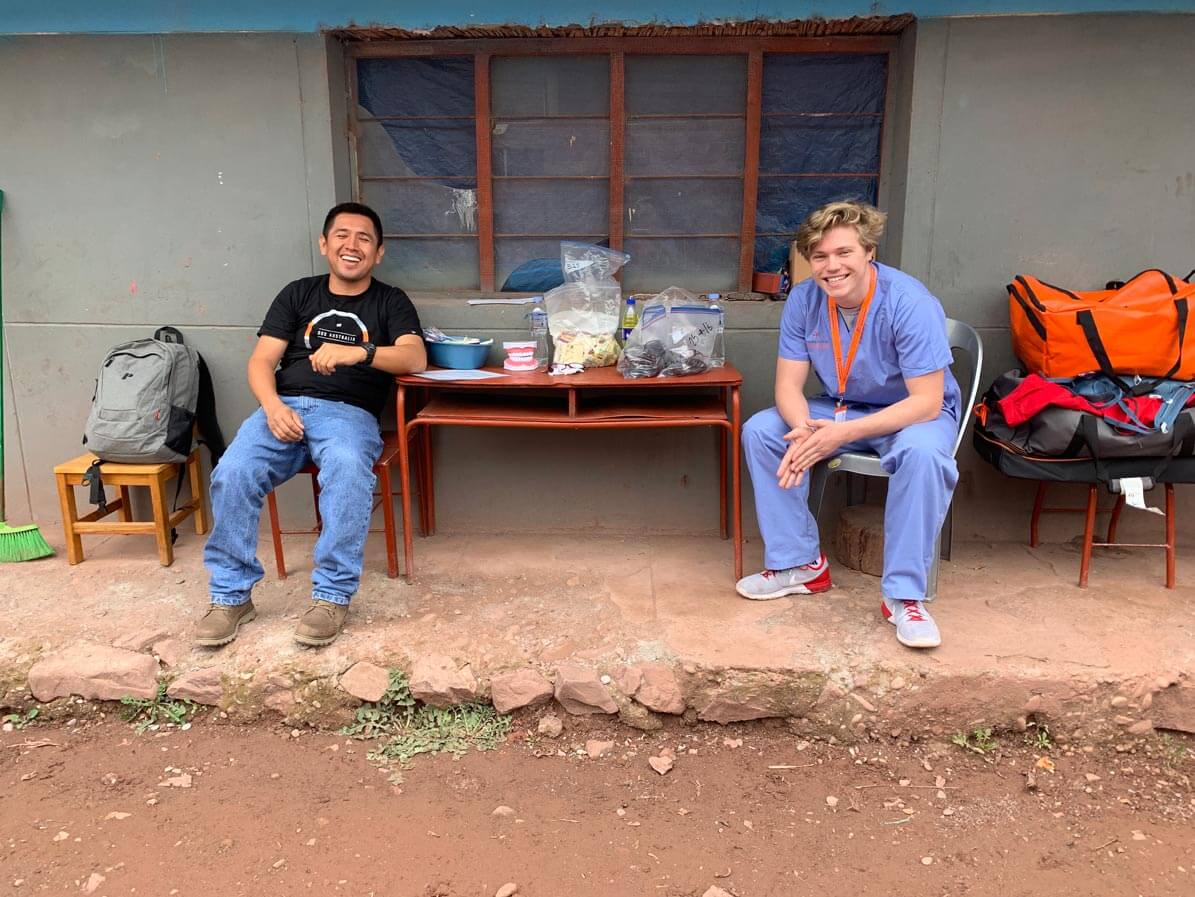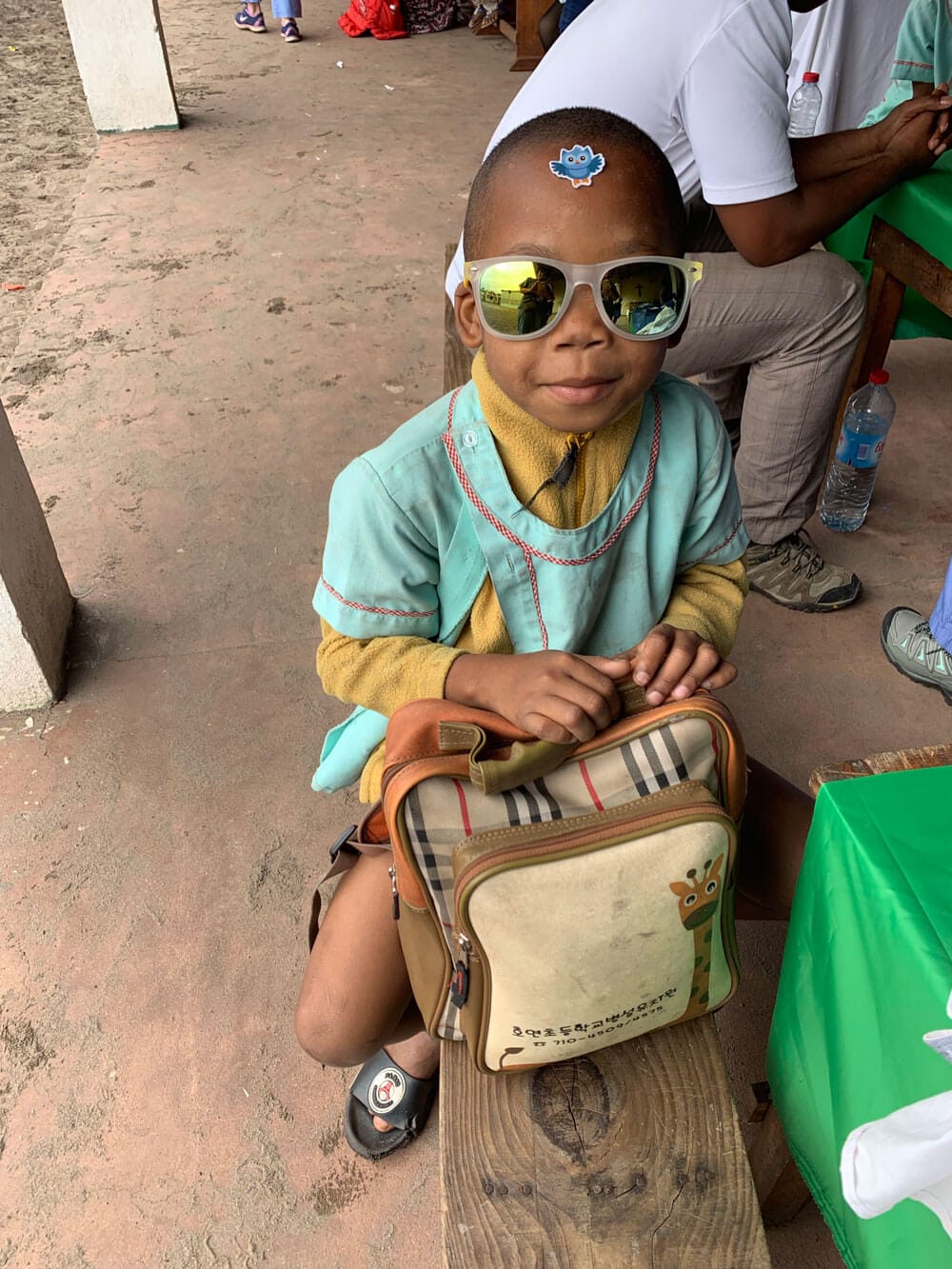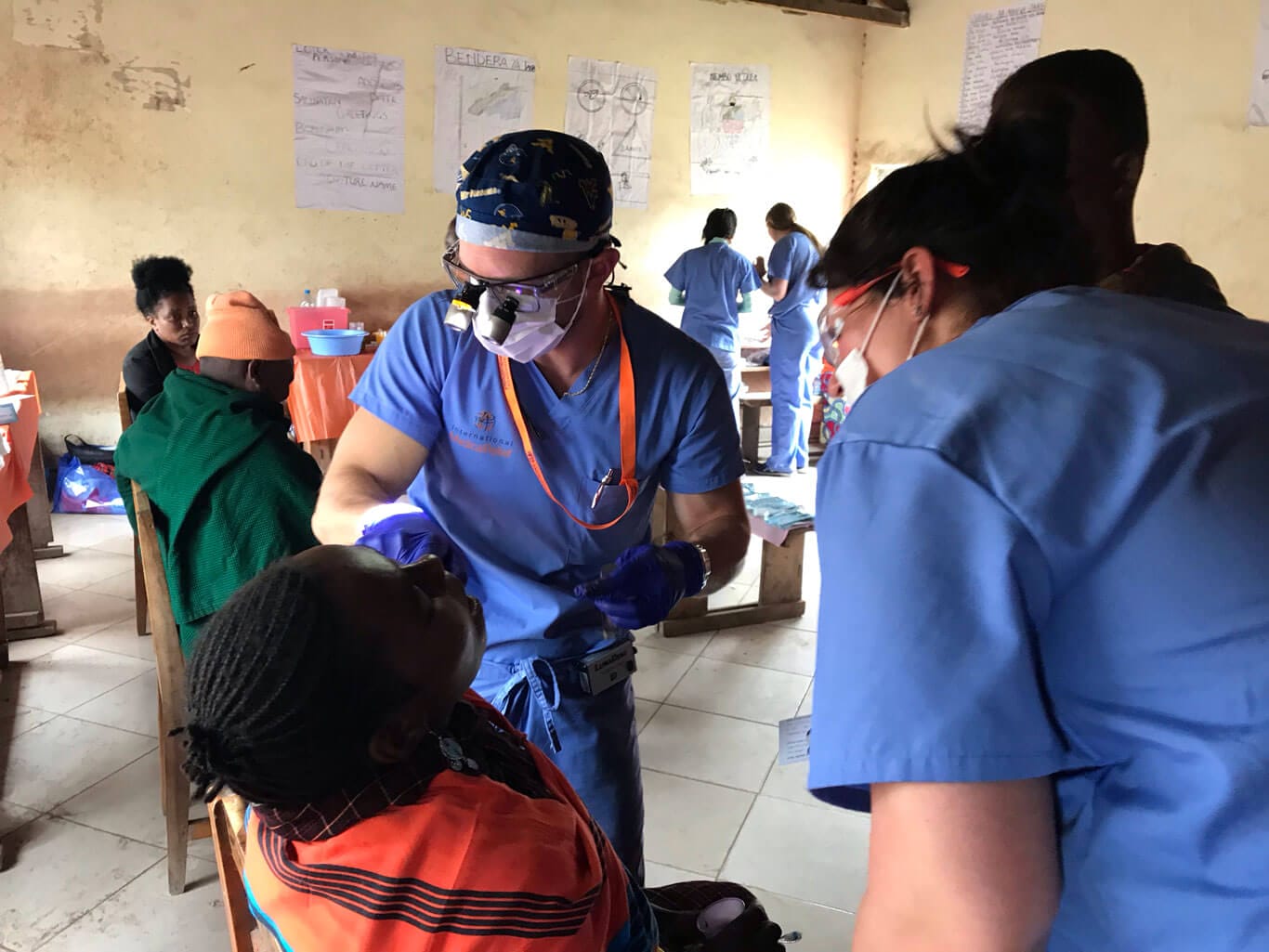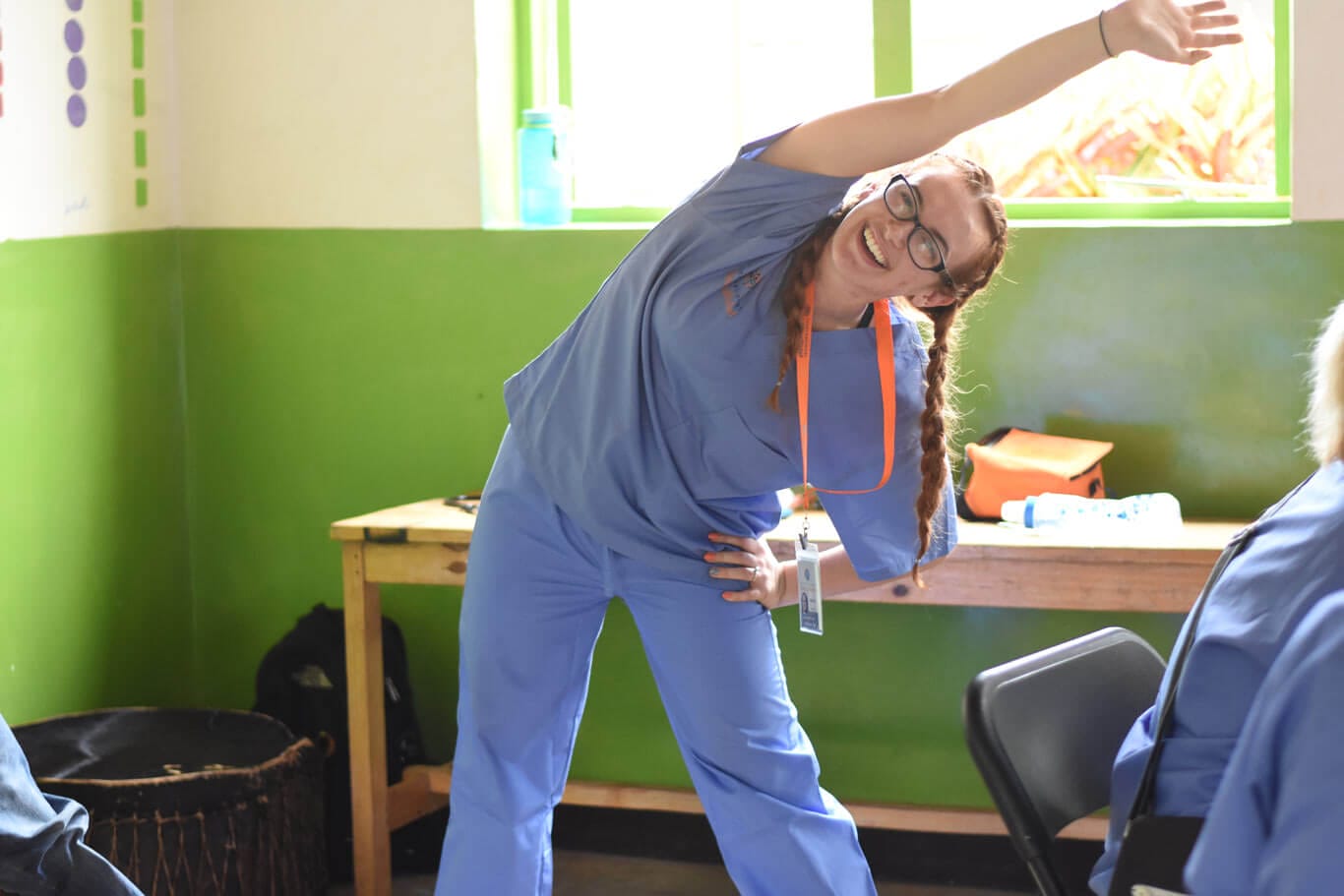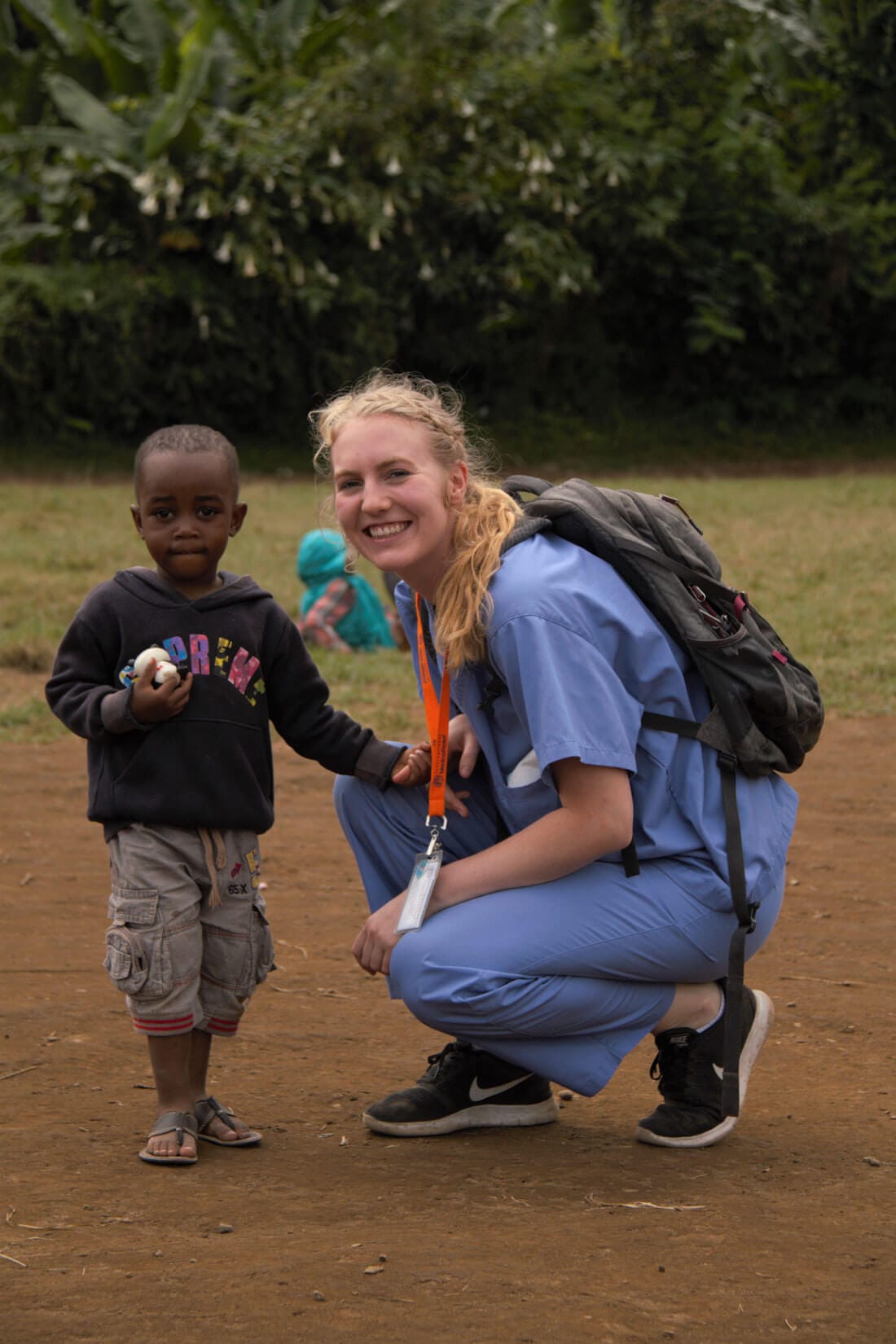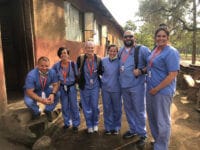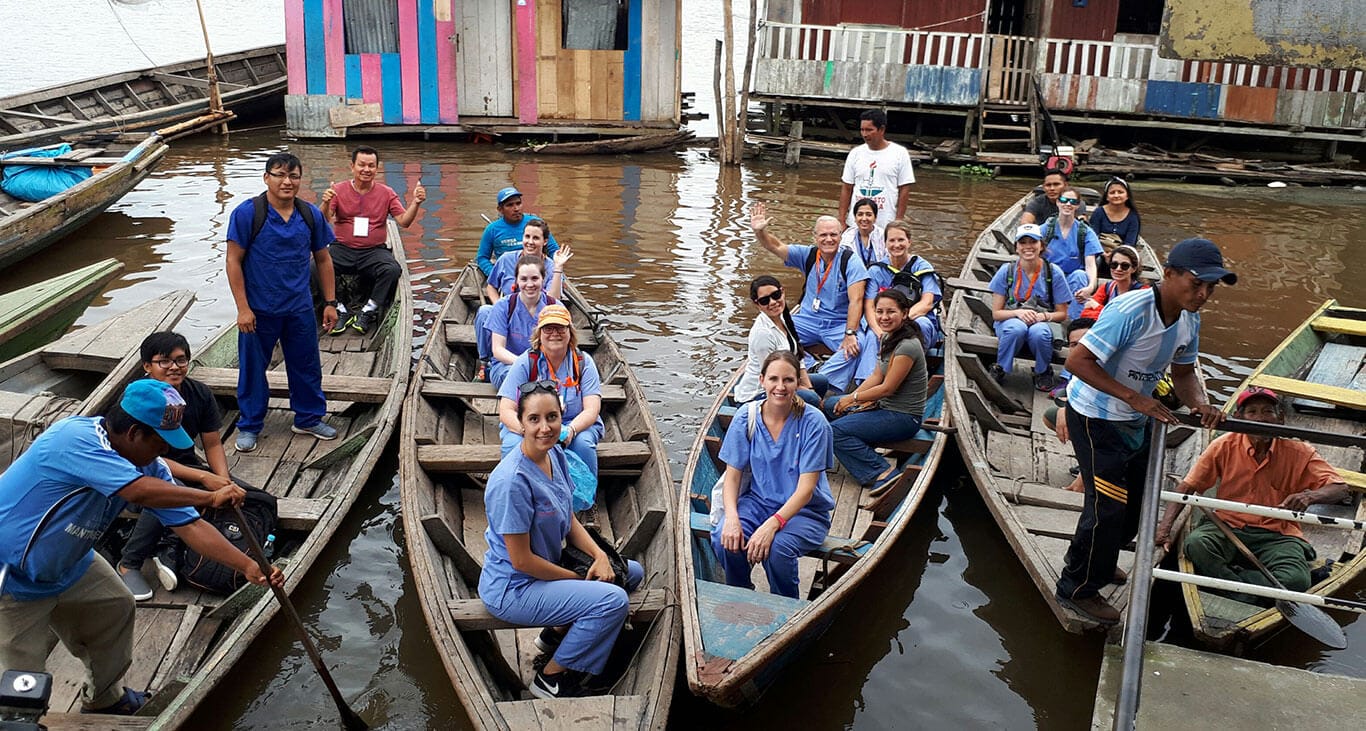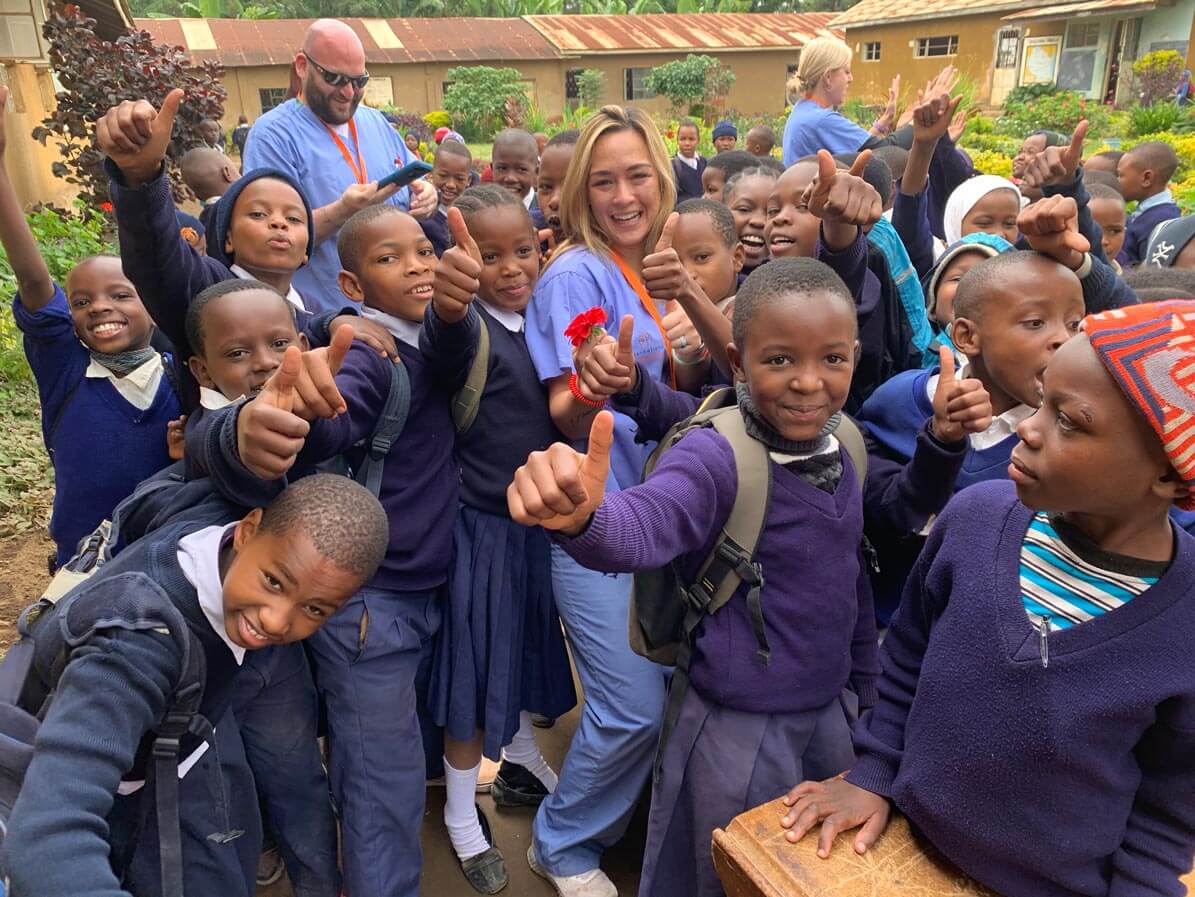A Day in Clinic
What Does Clinic Look Like?
Every clinic looks and feels differently. The site, the number of patients and their culture, and the capability of the team all contribute to the uniqueness of the day.
IMR clinics are designed to benefit the care our patients receive. You can expect to see each department in clinic to have a unique space. This might mean that the laboratory and wound care share a table in the center of a tarp or that each have their own room in a school. Your team leader, chief medical officer and your team will work together to create a functional and efficient space for you to treat your patients.
How Does Clinic Start?
Each clinic day starts with a short morning briefing at breakfast and a logistics briefing at the site:
- The team leader will review assignments for the day at breakfast
- The team leader and chief medical officer will designate areas for each aspect of clinic during an arrival walk-through
- All providers will discuss protocols/expected (potential) cases based on what was seen prior and do a walk-through of pharmacy and the various departments to see what is available and understand the layout of clinic
Setting Up Clinic
- Each team member will be responsible for a specific department or task to set up in the morning and break down at night. Tasks include:
- Putting up department/location signs and putting out garbage bags
- Establishing location of team bathrooms, lunch, and patient privacy area and notifying team
- Setting up team hand washing area and patient hydration stations
- Setting up provider and patient waiting and treatment areas: registration, triage, community education, patient/provider stations, private or separate areas for specialty care and mental health providers, wound care, laboratory, and pharmacy
- Establishing control of clinic patient entry points
- Packing and preparing lunch for the team
- Pre-packing medications and doing statistics in the evening
- Each department will have a self-contained bag with all of the supplies for that department and a packing list. It is important that every bag is unpacked and packed carefully for clinics to function efficiently!
- Our patients and our team are best served by a clinic that is orderly and quiet. It is important for you to be able to treat your patients in a quiet area, where you can speak softly and think clearly.
- Immediately establishing a waiting area for patients already in clinic prior to the team’s arrival will help establish a calm, orderly flow for registration. Patients will be assigned a number at registration that will determine the order patients are seen, again keeping clinic orderly.
- The team contributes to a smooth clinic by performing their assigned activities and not rushing the opening of clinic.
- Most importantly, sick or elderly patients, pregnant women, and parents with babies should be moved forward in the line and seen as soon as possible, especially if it is hot.
Clinic Departments
- In registration, adult patients read and sign a release of liability and each patient receives an intake form that becomes their personal medical record. This is important for our patient’s health because it provides an assessment of our patient’s health on that day and information on laboratory results, procedures, diagnoses, medications, and education they received..
- The IMR team triages patients waiting in line to be registered throughout the day
- Sick and elderly patients, pregnant women, and parents with babies are seen as soon as possible!
- Our team triages the patient line and offers water on a regular basis.
- All patients have their vital signs taken prior to or during triage.
- Medical staff members are trained to take vital signs and work side-by-side with providers in this area.
- Providers are required to bring their own diagnostics. IMR supplements this equipment by providing manual and automatic blood pressure cuffs, stethoscopes, pulse oximeters, thermometers, measuring tapes and scales for the triage area.
- All patients older than 6 months and under 5 years receive albendazole (deworming) and vitamin A (with permission of a responsible adult) if allowed by the Ministry of Health.
- The triage team obtains the chief complaint and makes the initial determination if patients are sick or well.
- Patients are triaged to the most appropriate providers on that team.
- Patients frequently see more than one provider during their visit.
- Patients requesting dental only go directly to the dental waiting area where they receive a well check examination and blood pressure.
Sustainability
One of the greatest assets that our teams leave behind is our knowledge. Community Health Education is the sustainable component to our short-term medical mission. Our patients leave clinic with valuable knowledge that can at times be life saving. Health education will improve the quality of their life, just as it does in more developed countries. It can truly change an entire community for the better and is an important part of what we do.
Every patient receives basic health education classes and individual education based on their health needs from their provider. Please don’t rush the community health team to finish quickly to get patients to providers – their work is of the utmost importance.
Teaching
Even if you don’t think you want to teach community education, give it a try! Our team members say it is one of the most rewarding activities in clinic. Providers, Nurses, EMS, Pharmacists, and all medical staff are welcome and encouraged to teach classes.
Patients will receive instruction using health education classes prepared by IMR. Please take a look at the Community Health Briefing Packet for more information about our classes. Instructors distribute soap, toothbrushes, and other health-related gifts after the classes are finished and before patients move to the next station.
Training Local Health Care Workers
IMR may train and certify local health care workers, teachers, or health care students to deliver community education classes. One complete set of posters is left for each community we serve so their leaders can teach it forward.
Collaborative Care Teams
- Providers, Pharmacists, Nurses, EMS, Medical/Nursing students, and medical staff volunteers frequently work in care teams, enabling providers to easily reach out to other providers for a consult or to transfer/refer a patient to other departments. Clinical Pharmacists will consult with the care teams to enhance medication management and patient care/education.
- A triage team (Nursing and EMS) determines the chief complaint of each patient and the level of care needed.
- Nurses provide care for our well and slightly sick patients while physicians and advanced practice providers treat our sicker patients, all in consultation with the clinic pharmacist.
- If the patient requests medical and dental care, they will see the medical team before being treated in dental.
- Our teams and patient care are frequently enhanced by providers skilled in Acupuncture, Chiropractic, Massage, Physical and Occupational Therapy. Providers offering specialty care will have a defined area within clinic and patients will be referred to them during the triage process. These providers will have strong collaboration with our care teams.
- Psychologists and trained counselors frequently join IMR teams and provide greatly needed therapy for patients. Grief, anxiety, depression, and other psychological illness are frequently seen, often presenting as headaches, insomnia, stomachaches, and general pain. Team leaders will make every effort for mental health providers to have a private and quiet area in which to work.
- We see many families in clinic. Sick and well patients are often mixed together, resulting in multiple providers working with a family group.
- The Dental Clinic is one of the busiest places in an IMR team. Check-ups, oral hygiene education, fluoride treatments, oral cancer screenings, deep cleanings, and extractions take place all day. Improving dental health will improve the health of the community as a whole.
- The dental clinic is frequently separated from the main clinic and has its own waiting line, quiet space, and sterilization set up. Dental will have their own small pharmacy based on their needs and will consult with our pharmacists as needed.
- Patients seeing the dental team will receive health education after registration and before seeing the dental team.
- When there is no formal dental component, IMR sets up a fluoride station for all children over 7. Older children can also be referred for fluoride treatment by providers or as requested by parents.
- Oral hygiene education is repeated in the fluoride station for the children. It is also taught to all patients in community health education.
- Each team carries basic lab tests for use in clinic, including urine pregnancy tests, urinalysis smissions, glucometers, and malaria tests.
- Injectable antibiotics and supplies are kept in the laboratory.
- The wound care station can be very busy with significant wounds.
- Each team has a fully stocked wound care bag including injectable local anesthetics and minor surgical equipment.
- Clinical Pharmacists and assigned pharmacy staff ensure that patients receive the correct medication and provide education on how to appropriately take and store medication safely.
- All patients take their first dose of prescription medication in clinic to ensure they understand the directions and can manipulate the packaging.
- Clinical pharmacists work as part of the provider team to ensure appropriate prescribing and substitutions as required.
- Prescription medications and suspensions are dispensed at the sick pharmacy. The pharmacy may deliver medications to the provider for teaching and education if necessary.
- The purpose of the well pharmacy is to reduce wait times for medications as patients finish clinic.
- The team will “pre-pack” commonly used over the counter medications into dispensing bags and place a label with the medication name inside each bag in the evening.
- Providers dispense and educate patients on the pre-packaged medications given at their stations. Pre-packaged medications may include pain medications, vitamins, anti-fungal creams, hydrocortisone, PPIs, and allergy medications.
Respiratory
- Nebulizer treatments are provided for acutely ill patients.
- Respiratory therapists and nurses teach correct inhaler use.
- Education on smoke inhalation is repeated in the respiratory clinic, focusing on indoor cooking with clean fuels, outdoor air pollution, and triggers for specific conditions.
Oral Rehydration
- How to make oral rehydration home brew is taught in community health.
- On hot days, we set up a hydration station that patients can access at will.
- EMS and Nursing triages the registration line frequently and medical staff volunteers offer patients water if a station can’t be set up outside.
ICU
- An ICU is established for IVs and patients requiring monitoring.
- Minor procedures also take place in this area of clinic.
Privacy Room
- Ideally, each clinic should have a private area for exams and counseling.
Reading Glasses
- Reading glasses and sunglasses may be distributed at a separate station staffed by medical staff volunteers, by the providers, or in community education. Reading glasses are provided to any patient who needs to see, regardless of literacy. The grandmother who needs to see a grandchild’s rash, the seamstress, the mechanic, and the butcher: seeing clearly is an important intervention in our clinics.
Vaccination and HIV Testing Clinics
- Vaccination clinics are often sponsored by IMR Partners. They are usually run under the direction of the Ministry of Health in side-by-side clinics with IMR. Sometimes, IMR purchases vaccinations in country and hires local personnel to vaccinate patients.
- HIV testing may run side-by-side with IMR clinics in partnership with the local health ministry. HIV testing is not conducted unless there is a qualified counselor to meet with reactive patients and provide them access to the system for follow-up care.
Wrapping Up the Day
We finish the day with an evening briefing:
- Everyone shares their most significant experience from the day. All providers are asked about their cases – what was the most common, least common, most difficult, and if there are any common illnesses that may benefit from specific community health education.
- Tomorrow’s schedule and clinic location will be discussed
- Pharmacy will update the team on common substitutions, medications that may be in short supply, and any prescribing concerns.
- Community Education teachers will share a story from their class and discuss what they have learned from patients that may be relevant to prescribers. For example, if community health learns that patients are using a spice that is very high in salt, providers can enhance their educational efforts with patients with high blood pressure by reminding patients to cut back on that particular spice in cooking.
Join Us in Making a Difference.
Bring much-needed acute medical and dental care to a beautiful, culture-rich destination. You can join an IMR medical mission team today!
